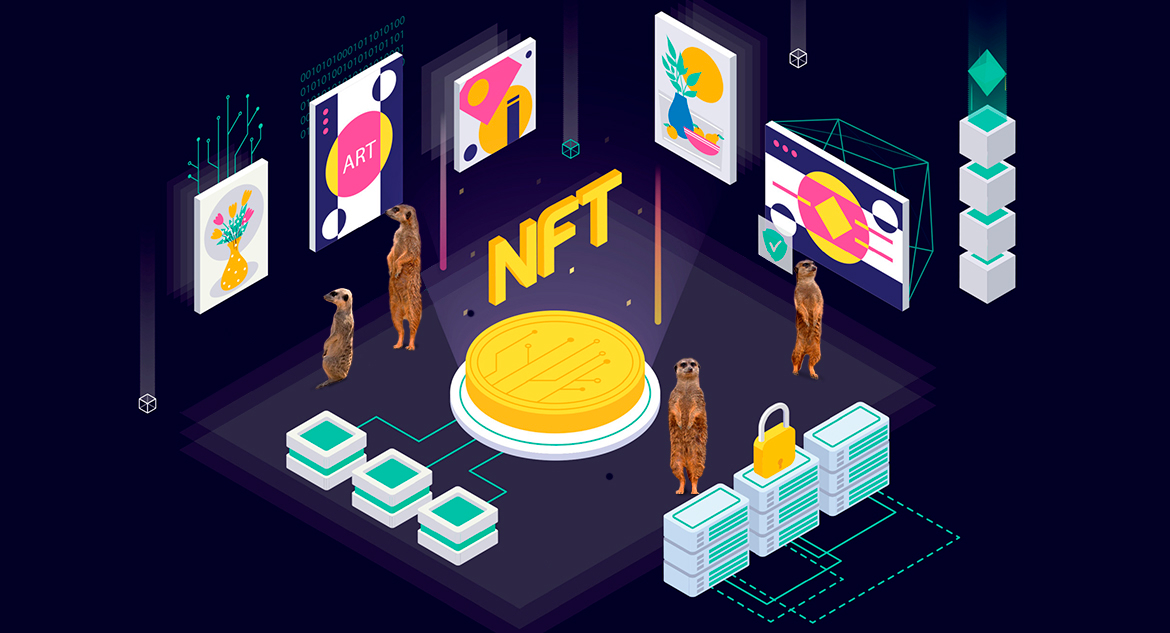NFTs (Non-Fungible Tokens) have taken the world by storm, initially capturing attention with digital art and collectibles. However, the potential of NFTs extends far beyond these initial use cases, opening up new possibilities in various sectors, including real estate, music, gaming, and even identity verification. As NFT marketplaces evolve, they are poised to become integral parts of numerous industries, offering innovative ways to buy, sell, and trade assets.
The Evolution of NFT Marketplaces
NFT marketplaces have rapidly evolved from niche platforms catering primarily to digital artists and collectors to robust ecosystems supporting a wide range of assets. These platforms now facilitate the buying and selling of virtual land, music rights, and even tokenized real estate, providing a glimpse into the future of asset ownership and transfer.
One of the key developments in the evolution of NFT marketplaces is the integration of decentralized finance (DeFi) features. By enabling staking, lending, and fractional ownership, these marketplaces are not only making NFTs more accessible but also creating new ways for users to earn income from their assets.
Beyond Art: Diverse Applications of NFTs
While digital art and collectibles remain popular, NFTs are finding applications in many other fields. In real estate, for example, NFTs can represent ownership of a property, making transactions faster and more secure. Similarly, in the music industry, artists are using NFTs to sell music rights, allowing them to retain control over their work while receiving direct payments from fans.
In gaming, NFTs are revolutionizing the way players own and trade in-game assets. By tokenizing items like weapons, skins, and characters, NFTs enable players to truly own their digital possessions and trade them across different platforms. This not only enhances the gaming experience but also creates new opportunities for monetization.
Challenges and Opportunities
Despite their growing popularity, NFT marketplaces face several challenges. One of the most pressing issues is the environmental impact of blockchain networks like Ethereum, which powers the majority of NFTs. As the market grows, finding sustainable solutions will be crucial to ensure long-term viability.
Additionally, the legal and regulatory landscape for NFTs is still evolving. Questions around intellectual property rights, fraud prevention, and consumer protection need to be addressed to build trust and encourage broader adoption.
However, the opportunities are vast. As NFT marketplaces continue to innovate, they are likely to unlock new value across various industries. For traders, staying informed about these developments will be essential to capitalize on the potential of NFTs.
The Future of NFT Marketplaces
Looking ahead, NFT marketplaces are expected to become even more sophisticated, with enhanced features for user interaction, security, and scalability. The integration of virtual reality (VR) and augmented reality (AR) could also play a significant role in the future of NFTs, creating immersive experiences for buying and selling assets.
As the NFT market matures, it will likely see increased participation from institutional investors, further legitimizing the space and driving growth. For crypto traders, understanding the dynamics of NFT marketplaces will be key to navigating this exciting and rapidly evolving sector.
NFT marketplaces are rapidly evolving, offering far more than just digital art and collectibles. With applications ranging from real estate to gaming, they are transforming industries and creating new opportunities for traders and investors. As the market continues to grow, staying informed about the latest developments in NFT marketplaces will be crucial for anyone looking to succeed in the crypto space.



